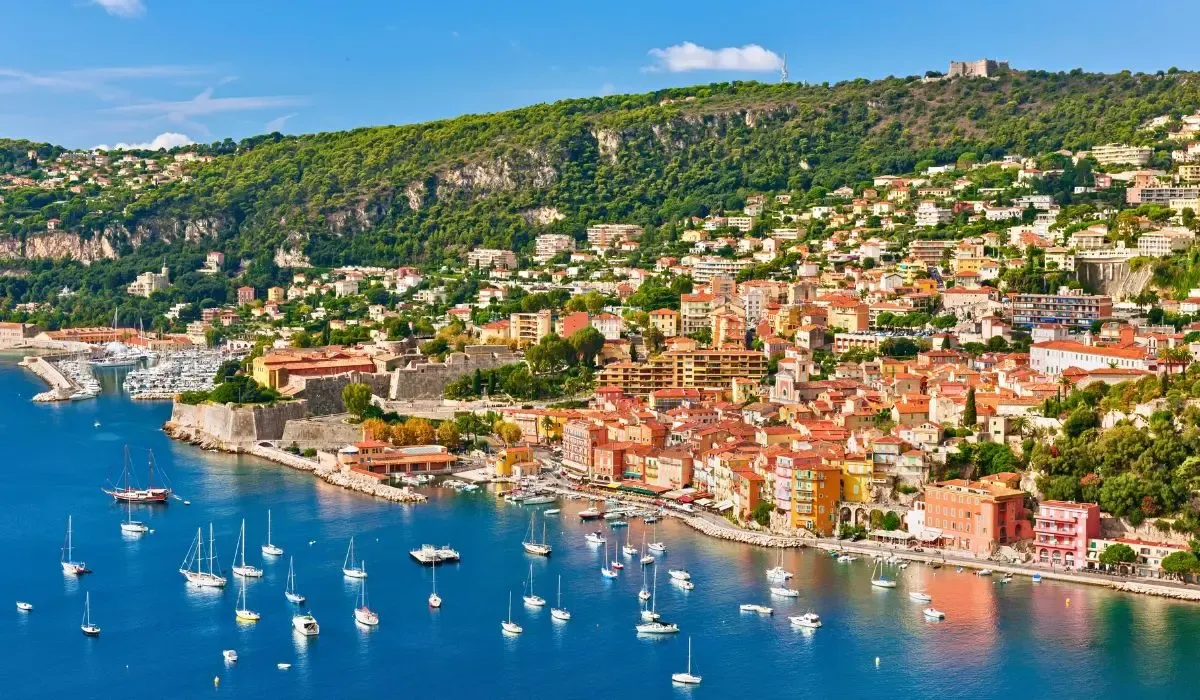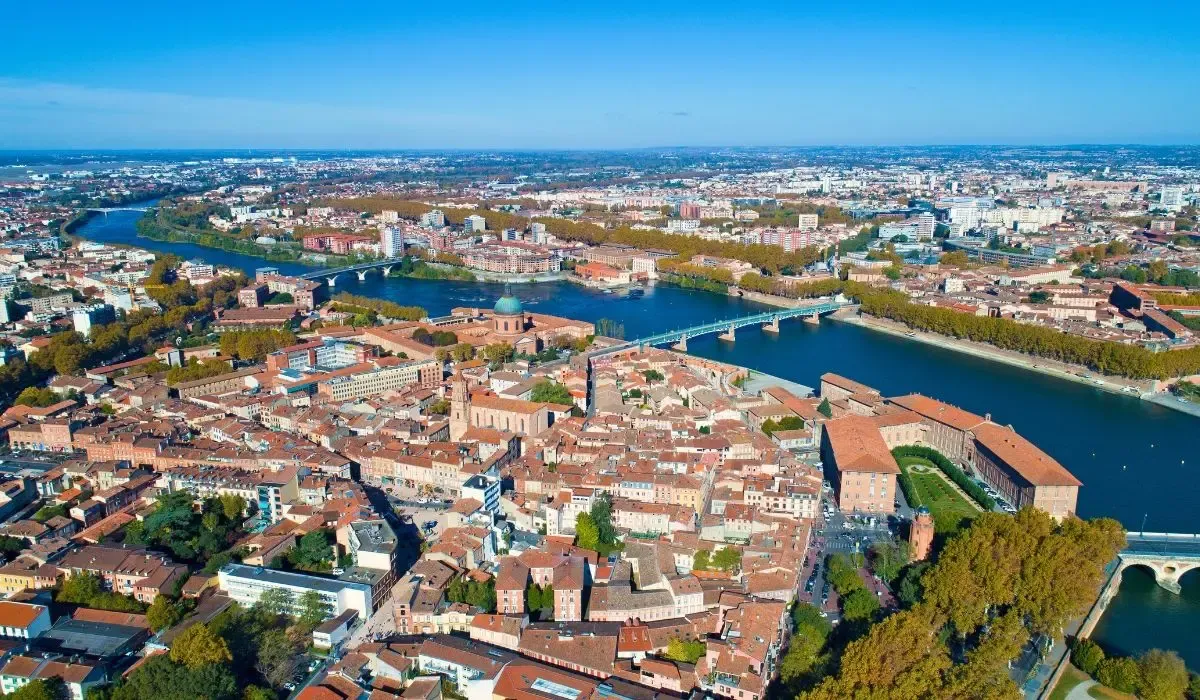Guide for Canadians Buying Property in France
Buying property in France from Canada? MTFX helps Canadians convert CAD to euros (EUR) at market-leading rates and securely transfer large sums to French notaires, developers, or escrow accounts. Whether you’re purchasing a Paris pied-à-terre or a countryside retreat in Provence, MTFX saves you money on foreign exchange and helps you navigate international payments with ease.
Want to own a quaint cottage nestled amidst lavender fields in Provence or a chic apartment overlooking the iconic Eiffel Tower in Paris?
France has a special allure for Canadians, whether it's the allure of Paris, the charm of a countryside retreat, or the dream of owning a historic villa in Provence. Buying property in France can be both a lifestyle choice and a smart investment. But navigating a foreign real estate market requires understanding the processes, legalities, and unique aspects of French property ownership.
This guide will explore how Canadians can buy property overseas, break down costs, highlight regional hotspots, and address common questions about residency and citizenship. Whether buying a vacation home, an investment property, or a permanent residence in france, this guide will equip you with the information needed to make informed decisions.
Can Canadians buy property in France?
Yes, Canadian citizens can legally purchase property in France. The country imposes no restrictions on foreigners buying property in France, making it an attractive option for Canadians and other international buyers. Whether you're buying a house in France or considering a long-term investment in the French real estate market, the process is relatively straightforward. France has a robust legal framework that protects property rights, ensuring transaction transparency and offering foreign buyers the same rights as French nationals.
However, it's important to note that buying property in France does not automatically grant residency rights. For non-EU nationals, including Canadians, wishing to live in France for more than 90 days, obtaining a long-stay visa is typically required. This visa can later be converted into a residence permit depending on the individual's situation, such as employment, retirement, or other grounds for residency.
Pro tip: Consider hiring a bilingual lawyer to guide you through the legal process and ensure all documentation is handled properly. Additionally, plan how you’ll send money from Canada efficiently and cost-effectively to complete your property purchase and manage ongoing expenses in France.
Why buy property in France?
France is celebrated for its robust real estate market and diverse property offerings, making it an attractive option for international buyers. From urban apartments in bustling cities to serene countryside homes, France offers a range of opportunities to suit various preferences and investment goals.
Stable real estate market: France's real estate market is known for its stability, with historically steady property values. French properties typically retain their value over time, whether in bustling cities like Paris or charming rural villages. This resilience offers confidence to buyers and investors looking for a long-term investment.
Exceptional quality of life: France is globally recognized for its superior quality of life. From the breathtaking landscapes of the French Riviera to the cultural riches of Paris, owning a property in France gives you direct access to some of the world's best amenities. Additionally, France boasts excellent healthcare, education, and public services, ensuring a high standard of living for residents.
Income-generating potential: Property ownership can be a lucrative source of income for those who don't reside in France year-round. Popular tourist destinations like Paris, Nice, and Bordeaux attract visitors year-round, offering short-term or vacation rental income opportunities. Long-term rentals are also a solid option, potentially generating steady returns.
Tax incentives: France offers various tax benefits for property owners, including deductions for mortgage interest, property taxes, and maintenance expenses. For those selling their primary residence, capital gains tax may be exempt under specific conditions, offering a potential financial advantage when it comes time to sell.
Path to residency or citizenship: Investing in French property may provide residency or citizenship opportunities, particularly if the property's value meets specific thresholds. Several residency-by-investment programs in France allow foreign nationals to apply for long-term visas or citizenship based on their property ownership.
Overall, owning property in France offers a balanced mix of lifestyle benefits, financial incentives, and investment opportunities. Whether you’re looking for a serene retreat, a profitable rental income, or a base for long-term residency, France’s real estate market provides a compelling proposition for international buyers. It’s also important to plan how you’ll send money efficiently to manage your property purchase and ongoing expenses, ensuring you get the best rates and minimize fees.

Popular places to buy property in France
When deciding on the best place to purchase a home, the choices in France are vast, catering to various preferences and lifestyles. From bustling cities to tranquil countryside retreats, there’s something to suit every lifestyle and investment goal. Let’s explore some of the most popular areas to consider when buying property in France.
Paris
The world-renowned “City of Light” offers a dynamic and cosmopolitan lifestyle, ideal for those seeking proximity to culture, art, history, and fine dining. Known for its iconic landmarks like the Eiffel Tower and Louvre Museum, Paris offers both historic apartments and modern living spaces. The city’s real estate is among the most expensive in France, with prices often exceeding €10,000 per square meter. It’s also a top destination for rental income, particularly short-term vacation rentals. For Canadians looking to buy a vacation home, Paris is unbeatable if you’re seeking a prime investment or a luxurious lifestyle.
Normandy
For a quieter, more affordable lifestyle, Normandy offers a scenic alternative. This region is renowned for its lush countryside, historic sites, and proximity to the coast, including the famous D-Day landing beaches. With prices generally lower than those in Paris and other major cities, Normandy is an attractive option for retirees or those seeking a second home in France. The area boasts charming villages, apple orchards, and traditional half-timbered houses, making it ideal for those who appreciate a more peaceful, rustic lifestyle while still being well-connected to France’s rich history.
Provence
Provence is known for its stunning natural beauty, warm Mediterranean climate, and delightful lavender fields. With its picturesque villages, vineyards, and olive groves, this region is a dream for nature lovers and food enthusiasts. Areas like Aix-en-Provence and Avignon offer a blend of rural charm and urban amenities, making Provence one of Europe's most desirable regions for buying property. While property prices here can vary, many buyers are drawn to the idyllic way of life and the opportunity to own a home surrounded by scenic landscapes.
French Riviera (Côte d'Azur)
The French Riviera is the place to be for those looking for luxury and a glamorous lifestyle. Famous for its stunning coastline, sunny weather, and world-class amenities, this region attracts wealthy buyers from around the globe. Cities like Nice, Cannes, and Monaco offer a range of luxury properties, from seaside villas to modern apartments with panoramic views of the Mediterranean. The French Riviera is a prime location for those seeking vacation homes or high-end investment opportunities, with the potential for significant returns through short-term rentals.
The French Countryside
For those searching for tranquillity and affordability, the French countryside offers an escape from the hustle and bustle of city life. Regions like Dordogne, Burgundy, and the Loire Valley are known for their peaceful charm and historic properties. Homes in these areas often come with large gardens, rolling hills, and ancient stone houses, offering plenty of space for those looking to unwind. Property prices in rural areas are typically much lower than in urban regions, making it a great option for first-time buyers or those seeking a slower pace of life.
In conclusion, whether you're drawn to the glamour of the French Riviera or the peacefulness of the French countryside, France offers an array of options for property buyers. Each region has its unique appeal, and with careful consideration of your lifestyle preferences and budget, you're sure to find the perfect place to invest in French real estate.
Factors to consider when buying property in France
When buying property in France, there are several important factors to consider to ensure a successful and satisfying investment;
Location: Consider the location carefully, as it will impact the property's value and your lifestyle. Decide whether you prefer a bustling city, tranquil countryside, or picturesque coastal area. Research factors include proximity to amenities, transportation links, schools, and recreational facilities.
Legal and financial requirements: Foreign buyers face no restrictions, but following French property laws is vital. Work with a notary (notaire) to ensure the process is legal and transparent. Additionally, assess your financing options, such as securing a mortgage through French banks, which often requires proof of income and assets.
Taxes, fees, and currency exchange: Be prepared for additional costs like notary fees (7–8% of the property price for older homes), annual property taxes (taxe foncière and taxe d'habitation), and stamp duties. If purchasing in euros, protect yourself from exchange rate fluctuations using services like MTFX to secure bank-beating rates and minimize currency risks.
Property and maintenance costs: Understanding the costs involved in buying property in France is crucial. The costs can vary widely depending on the location and size of the property. In addition to the purchase price, buyers should be prepared for extra expenses such as notary fees, registration fees, and potential renovation costs.
To estimate possible renovation costs, it's also important to thoroughly investigate the property's condition, particularly for older homes. You should also account for ongoing expenses like utilities, maintenance, and association fees for apartments. Being aware of these additional costs will help you better plan for the financial commitment of buying property in France, ensuring a smooth and well-prepared purchase.
Market trends and rental regulations: Conduct thorough market research on property values and demand in your desired region. If you plan to rent, understand local rules, as cities like Paris often require permits for short-term rentals.
Residency, taxes, and cultural considerations: Owning property in France doesn't grant residency. Understand tax implications as a non-resident, including capital gains tax when selling. Additionally, working with bilingual agents or learning basic French can ease buying and facilitate communication with local authorities.
How to buy property in France?
If you're wondering how to buy property in France, the process involves a few key steps that can help you make a secure and informed purchase. Here’s a simple guide to walk you through it:
Research and planning
Start by determining your financial capacity. Consider the property price, additional costs like legal fees, taxes, and renovation expenses. Research neighbourhoods and understand the local real estate market to find the right location. Being well-informed about property trends and pricing can help you make a confident decision.
Hire professionals
Engage professionals who can guide you through the process, such as a real estate agent, lawyer, notary, and currency exchange provider. These experts can help you navigate the legal and financial intricacies of buying property abroad, ensuring a smooth and efficient experience. Their expertise can save you time and potential issues later.
Find a property and negotiate
Work with a reputable local real estate agent specializing in your desired area. Browse listings online to explore options ranging from apartments to estates. Once you select a property, sign the Compromis de Vente, a binding agreement outlining sale terms. A deposit (typically 10% of the property price) is required at this stage to secure the deal.
Legal, due diligence, and financing
Conduct thorough legal checks to ensure the property is free of encumbrances, liens, or legal disputes. A lawyer or notary can verify the title deed, land registry records, and any permits. Secure financing by exploring mortgage options or using personal funds to finalize your purchase.
Finalize the transaction
After fulfilling all conditions, including financing, the notary oversees the signing of the Acte de Vente, the final sales agreement. This legally transfers ownership of the property to you. Before you send money to France, it’s wise to check live exchange rates to understand market rates and secure the best possible value for your transfer. Ensure all payments, taxes, and fees are settled at this stage to complete the transaction successfully.
Why do exchange rates matter when buying property in France?
Paying attention to exchange rates is crucial when buying property in France, especially for foreign buyers. Fluctuations in the exchange rate can significantly affect the total cost of the property, your payment schedule, and the financial outcomes of your investment. Here's why they matter:
Cost of the property: The price of property in France is typically listed in euros, but if you're purchasing from abroad, you'll need to convert your local currency to euros. Any shifts in exchange rates between the time you agree to the price and when you complete the payment can result in unexpected changes to the amount you need to pay. For example, a stronger Canadian dollar can make the property cheaper, while a weaker dollar could make the property more expensive.
Monthly mortgage payments: If you finance your property purchase with a mortgage in France, changes in exchange rates can influence your monthly payments. For example, if your mortgage is in euros but your income is in another currency, the cost of servicing that debt will vary based on currency fluctuations, impacting your budget and financial stability.
Currency conversion costs: The process of converting your money from one currency to another incurs costs. Banks and currency exchange services often charge fees or offer less favourable exchange rates, which can add up over time. Using services like MTFX for international payments can help secure better rates, saving money in the long run.
Impact on future resale value: Currency movements may also impact the long-term value of your investment. A weakening of the euro relative to your home currency could make the property more affordable for international buyers when you decide to sell. On the flip side, if the euro strengthens, it may raise the property's price in your currency, potentially reducing the return on investment.
Inflation and economic factors: Currency fluctuations are often influenced by inflation and economic shifts. For foreign investors, staying informed about these changes helps you time your investment wisely, potentially securing a better exchange rate when the market is favourable.
Understanding these factors and using tools such as currency alerts and international payment services can help mitigate the risks and make the most of favourable exchange rates when purchasing property in France.
MTFX: Your trusted international payments partner
Buying property in France can be exciting but requires careful planning, especially when managing international payments. Exchange rates and the costs of transferring funds can significantly impact your investment. MTFX is the ideal partner to help Canadians navigate these challenges with ease.
Bank-beating exchange rates: MTFX offers competitive exchange rates that are often more favourable than traditional banks, which can lead to substantial savings when converting Canadian dollars to euros. Since property prices in France are typically quoted in euros, getting the best exchange rate can significantly affect your overall cost.
Low fees: Banks often charge hidden fees for international money transfers, which can add up quickly when sending large sums for property transactions. MTFX provides transparent pricing, ensuring you know exactly what you're paying without any surprises. This makes it ideal for managing large payments when buying real estate in France.
Speed and security: When purchasing property, timing is everything. With MTFX, you can ensure that your payments are processed quickly and securely, avoiding any delays that could impact your transaction. Whether you're making an initial deposit or completing your final payment, MTFX offers efficient services to keep your property purchase on track.
Dedicated support: MTFX offers expert guidance and customer support throughout the payment process. Whether you're dealing with legal requirements, navigating currency fluctuations, or managing the logistics of sending money to France, MTFX provides tailored solutions to ensure a smooth experience.
Currency flexibility: MTFX allows you to send payments to over 100 countries in multiple currencies. This is particularly beneficial for Canadians purchasing property in France, as it provides the flexibility to pay in euros and manage any future payments or mortgage obligations efficiently.
With MTFX by your side, you can confidently navigate the complexities of international property transactions in France, ensuring you get the best exchange rates, low fees, and a seamless payment experience every step of the way.

Make the most of your property investment with MTFX
When buying property in France, working with MTFX can save money, ensure secure transactions, and streamline your payment process. By offering competitive exchange rates, low fees, fast processing times, and expert support, MTFX makes it easier for you to focus on what really matters—your property investment. Whether it's for securing a dream home in Paris, buying a holiday retreat on the French Riviera, or investing in rural property, MTFX is your trusted international payments partner every step of the way.
Sign up on MTFX and start today with competitive exchange rates and expert guidance!
FAQs
1. What currency is used in French property transactions?
All transactions are settled in euros (EUR). MTFX facilitates CAD to EUR transfers.
2. How do I send money to France for a property purchase?
Use MTFX to transfer CAD to EUR securely and cost-effectively.
3. Can I split my payment into deposit and final balance?
Yes. MTFX supports multiple transfers as per your transaction schedule.
4. What documentation is required for large transfers to France?
If you choose MTFX to make large money transfers, you will need to create an account, and for that, you will need to provide basic details like you name and receipts banking information.
5. Do I need a French bank account to buy property?
Not necessarily. MTFX allows transfers to third parties, such as notaires, without requiring your own French account.
6. Can I use MTFX to pay for legal and closing costs in France?
Yes. MTFX can handle transfers for any part of the transaction—including legal, tax, and agency fees.
7. Can I track exchange rate movements to time my transfer?
Yes. Set up currency rate alerts to monitor CAD to EUR fluctuations.
8. How does MTFX compare to banks for property payments?
MTFX offers better rates, lower fees, faster settlement, and dedicated FX support- saving you thousands.
9. Does owning property in France offer visa benefits?
Not directly, but it may support your application for long-stay or retirement visas.
10. What are the benefits of using MTFX for a French real estate purchase?
Reduced FX costs, secure and fast payments, full visibility, and expert cross-border support.
Sign up on MTFX and start today with competitive exchange rates and expert guidance!
Related Blogs
Stay ahead with fresh perspectives, expert tips, and inspiring stories.

Keep updated
Make informed decisions
Access tools to help you track, manage, and simplify your global payments.
Currency market updates
Track key currency movements and plan your transfers with confidence.
Create an account today
Start today, and let us take the hassle out of overseas transfers.







